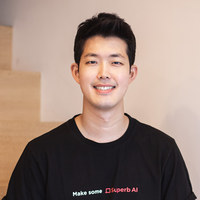Artificial intelligence & robotics
Emma Beede
Her work helps ensure that fancy AI tools perform in the real world.

Asia Pacific
Zhenzhong Lan
Virtual psychological therapist with integrated artificial intelligence technologies to provide instant and effective consultation services.

Korea
Hyunsoo Kim
Lowering the barriers to entry for developing production-grade AI.

China
Yunchao Wei
Significantly advancing the development of visual understanding under imperfect data.

Asia Pacific
Gao Huang
DenseNet, which elegantly solves the gradient vanishing problem in deep learning.
